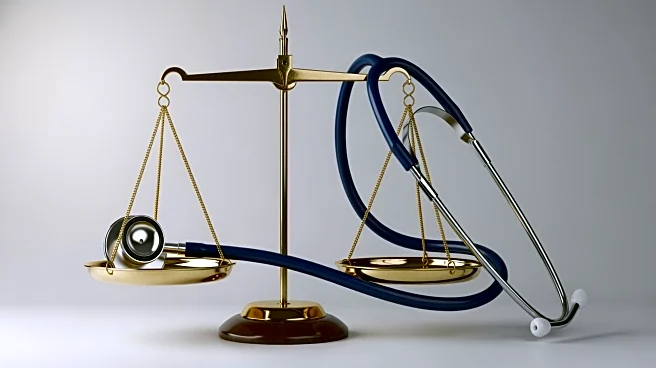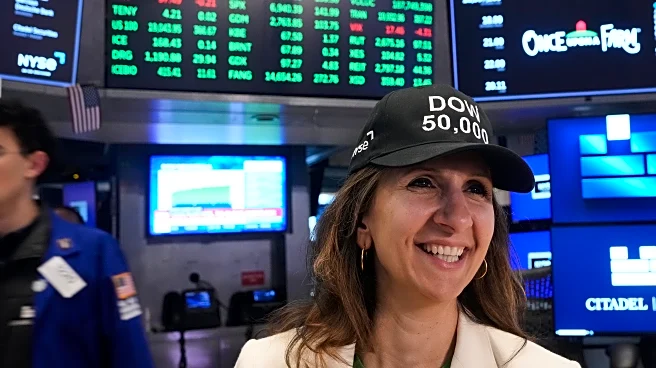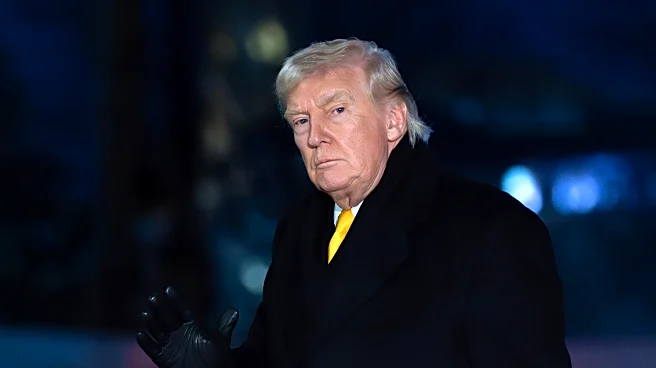What's Happening?
Comedian Jon Stewart has publicly criticized Democratic senators for agreeing to end the longest government shutdown in history without securing extended healthcare subsidies. Stewart expressed disbelief
at the decision, highlighting that eight Senate Democrats broke ranks to vote for a bill that ended the shutdown but did not guarantee the extension of Obamacare tax credits. During his show, Stewart mocked the Democrats for caving on their demands despite recent election victories. He emphasized that the deal only included a promise for a future vote, which he argued was insufficient given the Democrats' lack of control in the Senate. Stewart used clips from 'Schoolhouse Rock!' to illustrate the Democrats' misunderstanding of congressional processes, pointing out that any Senate vote would still require approval from President Trump and House Speaker Mike Johnson.
Why It's Important?
The criticism from Jon Stewart underscores the political tension surrounding the government shutdown and the Democrats' strategy. The decision to end the shutdown without securing healthcare subsidies could have significant implications for public policy and the Democratic Party's credibility. By agreeing to a deal without concrete commitments, Democrats risk losing leverage in future negotiations, potentially affecting millions of Americans reliant on Obamacare tax credits. Stewart's remarks highlight the broader issue of political strategy and negotiation tactics within the party, which could influence voter perception and impact upcoming elections. The situation also reflects the challenges faced by Democrats in navigating legislative processes when not in control of the Senate.
What's Next?
The Democrats' decision to end the shutdown without securing healthcare subsidies may lead to further political fallout. As the party faces criticism from both within and outside, there may be increased pressure to deliver on healthcare promises in future legislative sessions. The upcoming vote promised in the deal will be crucial, as Democrats will need to strategize effectively to gain support from Republicans and ensure passage. Political leaders and civil society groups may intensify advocacy efforts to hold Democrats accountable and push for healthcare reforms. The situation could also influence the party's approach to negotiations and policy priorities moving forward.
Beyond the Headlines
The Democrats' handling of the shutdown deal raises questions about political accountability and the effectiveness of negotiation strategies. The decision to prioritize ending the shutdown over securing healthcare subsidies may reflect broader challenges in balancing immediate political gains with long-term policy objectives. This development could prompt discussions on the ethical dimensions of political compromise and the role of public pressure in shaping legislative outcomes. Additionally, the situation may lead to introspection within the Democratic Party regarding its leadership and decision-making processes, potentially influencing future political dynamics and party unity.










